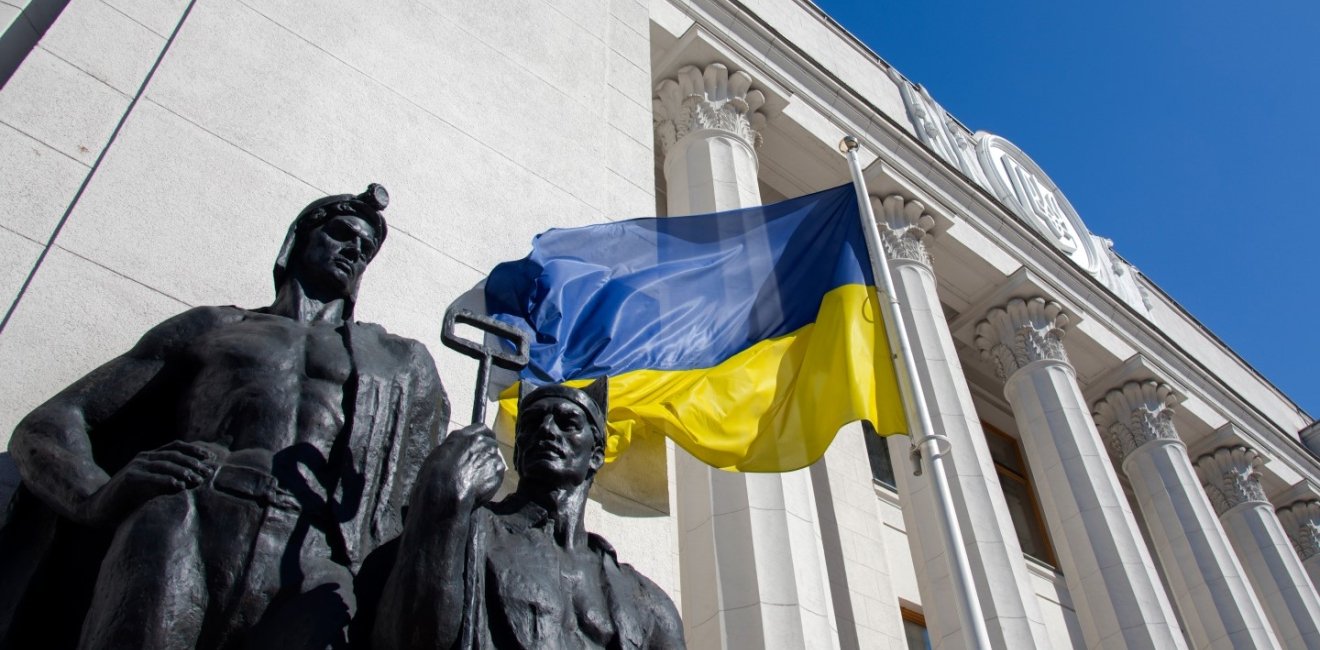
A blog of the Wilson Center
Despite daily bombardment by Russian forces, including countless attacks using North Korean munitions and Iranian drones, 88% of Ukrainians still believe they’ll win the war.
Twenty-six months after Russia’s full-scale invasion of Ukraine, just where are we in the war? More importantly, where do Ukrainians believe we are?
In many ways, Russia’s approach to this war is remarkably old-fashioned. Kremlin-led forces pound Ukrainian targets indiscriminately, hitting schools and apartment buildings, hotels and government offices, shops, and clinics, hoping to bludgeon Ukrainians into submission. They plant landmines, take hostages, and torture their captives. The Kremlin then amplifies the emotional impact of its destruction through propaganda and disinformation.
Is it working? Is Ukraine on the verge of submission?
A new survey of Ukrainian citizens conducted by the International Republican Institute (IRI) suggests not. Instead, Ukrainians remain optimistic and determined.
IRI has conducted public opinion polling in Ukraine for more than a decade. It has polled in peace time, and it has polled more than once since Russia launched this war just over two years ago. Last fall, a Stubborn Thing (“Asking Ukrainians”) featured an IRI survey revealing that an overwhelming majority of Ukrainians wanted their leaders to continue the fight to expel Russian forces and, believed they would succeed in that mission.
But a lot has happened since last fall. Ukrainians have endured another long winter with cold temperatures and relentless Russian attacks on the country’s energy infrastructure. Wilson Center Global Fellow Dr. Jack Watling has closely documented Russia’s war tactics within Ukraine. Russia has placed more than 4,000 artillery pieces across the country and is firing nearly 10,000 rounds a day across the war’s frontline. With nearly half a million Russian troops attacking Ukrainian positions every day, Putin’s assault on the country has been persistent. There have been more deaths and casualties since the last IRI survey was conducted, and the majority of Ukrainian families feel their economic situation is deteriorating—even as Ukraine’s real GDP grew by more than 5%.
Since mid-2023, Ukrainians have also seen US politics create uncertainties about American assistance. When I traveled around Ukraine in early February with a delegation from the UN High Commissioner for Refugees, I talked with Ukrainian military and civilian leaders, and everyday citizens, who were paying close attention to the debates in Washington, DC, and along the campaign trail, wondering if support would come.
Yet IRI’s latest National Survey of Ukraine suggests that the Ukrainian people are largely unshaken. Eighty-eight percent of respondents believe they’ll win the war, and 80% see a promising future for their country. More than 75% approve of how their armed forces are operating, and another 19% “somewhat approve.”
Ukrainians are also unshaken in their long term hopes for the country’s future: 77% favor joining the European Union over the Kremlin-created customs union with Russia, Belarus, and Kazakhstan. More than half see Ukraine joining the EU within the next 5 years, while only 3% can’t envision the country achieving EU membership. If given the chance, 77% would vote in favor of joining NATO—only 5% would not.
Not everything is rosy. As strong as Ukrainian determination is, the current numbers are lower than at earlier points in the war. While 88% of Ukrainians believe Ukraine will win the war, 94% held that view last September. As of February, 77% want to join the EU, but that view was held by 81% of Ukrainians in September of last year.
My recent visit to Ukraine impressed upon me how important American support is for the Ukrainians. Not merely the dollar figures, but in the broad show of solidarity that an assistance package would provide. Other countries have stepped up their support for Ukraine, especially NATO members and the EU. But as the leader of the free world, American support is what Ukraine seeks.
Ukraine is watching Washington. Putin is watching Washington. China, Iran, North Korea, Venezuela, and others are watching as well.
Author


Global Europe Program
The Global Europe Program is focused on Europe’s capabilities, and how it engages on critical global issues. We investigate European approaches to critical global issues. We examine Europe’s relations with Russia and Eurasia, China and the Indo-Pacific, the Middle East and Africa. Our initiatives include “Ukraine in Europe”—an examination of what it will take to make Ukraine’s European future a reality. But we also examine the role of NATO, the European Union and the OSCE, Europe’s energy security, transatlantic trade disputes, and challenges to democracy. The Global Europe Program’s staff, scholars-in-residence, and Global Fellows participate in seminars, policy study groups, and international conferences to provide analytical recommendations to policy makers and the media. Read more


Kennan Institute
After more than 50 years as a vital part of the Wilson Center legacy, the Kennan Institute has become an independent think tank. You can find the current website for the Kennan Institute at kennaninstitute.org. Please look for future announcements about partnership activities between the Wilson Center and the Kennan Institute at Wilson Center Press Room. The Wilson Center is proud of its historic connection to the Kennan Institute and looks forward to supporting its activities as an independent center of knowledge. The Kennan Institute is committed to improving American understanding of Russia, Ukraine, Central Asia, the South Caucasus, and the surrounding region through research and exchange. Read more

Explore More in Stubborn Things
Browse Stubborn Things
Spying on Poachers

China and the Chocolate Factory

India: Economic Growth, Environmental Realities

